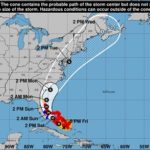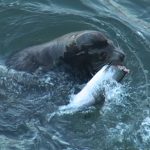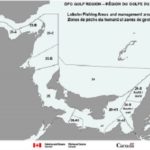Tag Archives: magnuson-stevens-act
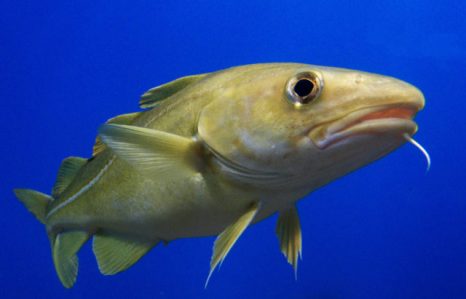
Choppy waters lay ahead for U.S. fisheries – Rebuilding Timeline – Science, or Fiction
Proposed changes to the Magnuson-Stevens Act, our nation’s fishery management law, would compound problems for the nation’s fish, says birder Harrison Tasoff. Fishery management got a significant boost when the act was reauthorized in 2007. The new legislation required the councils to base their strategies and quotas on scientific population surveys. It is crucial that these fish surveys are done by marine biologists. Professional fishermen’s knowledge of fish runs as deep as some of the waters they trawl. But their background prepares them for different kinds of tasks than a marine biologist, whose years of training equip them with the skills to conduct surveys and model ecological phenomena. The 2007 reauthorization also strengthened the timeframe that the agencies have to rebuild depleted fish stocks. Click here to read the article The Magnuson Stevens Act and its Ten Year Rebuilding Timeline: Science or Fiction? by Meghan Lapp One of the initial problems with a mandatory ten year rebuilding timeline is that it creates conflict within the law itself. Taking into account that a defined rebuilding schedule cannot be justified by science, a ten year requirement, or any time specific deadline at all,,, Click here to read the article 13:19
Who gets the fish? Support H.R. 200 – The “Strengthening Fishing Communities and Increasing Flexibility in Fisheries Management Act”
 Capt. Chuck Guilford has been searching the waters of the Gulf of Mexico for the bounty of the sea for 41 years. When Guilford started his career as charter boat captain and commercial fisherman there wasn’t a National Marine Fisheries Service (NMFS) and he said the fisherman handled the fishery themselves. Now Guilford feels as if he has no control. He used to go to the meetings of the NMFS as far away as Washington D.C., but he’s missed the last two. “I haven’t attended last two meetings because it was a waste of my dollars and my time,” Guilford said. “I have finally come to the conclusion after 10 years of attending meeting, that when the Marine Fisheries Council has a meeting they have already decided what they are going to do.” Some of Guilford’s concerns may soon be answered. The “Strengthening Fishing Communities and Increasing Flexibility in Fisheries Management Act” or H.R. 200 would amend the “Magnuson-Stevens Act” which is currently the law of the fisheries. The amendment would have NMFS take in account the economic costs of regulation, allow for greater community involvement, greater transparency in procedure and collected data, a limitation on future catch-share programs, and independent privately funded fish stock assessment to be used when available. click here to read this article, and contact your representative and TELL them to support HR 200 07:24
Capt. Chuck Guilford has been searching the waters of the Gulf of Mexico for the bounty of the sea for 41 years. When Guilford started his career as charter boat captain and commercial fisherman there wasn’t a National Marine Fisheries Service (NMFS) and he said the fisherman handled the fishery themselves. Now Guilford feels as if he has no control. He used to go to the meetings of the NMFS as far away as Washington D.C., but he’s missed the last two. “I haven’t attended last two meetings because it was a waste of my dollars and my time,” Guilford said. “I have finally come to the conclusion after 10 years of attending meeting, that when the Marine Fisheries Council has a meeting they have already decided what they are going to do.” Some of Guilford’s concerns may soon be answered. The “Strengthening Fishing Communities and Increasing Flexibility in Fisheries Management Act” or H.R. 200 would amend the “Magnuson-Stevens Act” which is currently the law of the fisheries. The amendment would have NMFS take in account the economic costs of regulation, allow for greater community involvement, greater transparency in procedure and collected data, a limitation on future catch-share programs, and independent privately funded fish stock assessment to be used when available. click here to read this article, and contact your representative and TELL them to support HR 200 07:24
Snapper silliness still has anglers seeing red
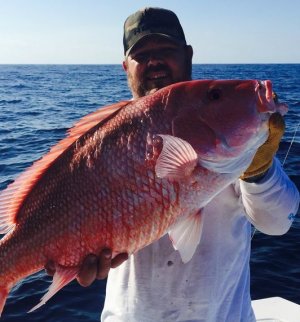 The bumper sticker on the white Ford pickup truck could not have been more clear: “National Marine Fisheries Service: Destroying Fishermen and Their Communities Since 1976!” Poignant. Harsh, even. But tame by today’s standards. The sticker made me think of an issue affecting offshore bottom fishermen who depart inlets between the Treasure Coast and South Carolina. I’m no mathematician, but something fishy is going on with red snapper statistics. Red snapper, a larger cousin of mutton snapper and mangrove snapper, resides in waters of the Gulf of Mexico and the Atlantic Ocean. It is presently off limits to harvest by east coast anglers, and has been since 2010. The reason? Because 10 years ago, fisheries statisticians determined that the red snapper fishery was “undergoing overfishing.” Along with “jumbo shrimp,” that expression is still one of my all-time favorite oxymorons. click to continue reading the story here 08:28
The bumper sticker on the white Ford pickup truck could not have been more clear: “National Marine Fisheries Service: Destroying Fishermen and Their Communities Since 1976!” Poignant. Harsh, even. But tame by today’s standards. The sticker made me think of an issue affecting offshore bottom fishermen who depart inlets between the Treasure Coast and South Carolina. I’m no mathematician, but something fishy is going on with red snapper statistics. Red snapper, a larger cousin of mutton snapper and mangrove snapper, resides in waters of the Gulf of Mexico and the Atlantic Ocean. It is presently off limits to harvest by east coast anglers, and has been since 2010. The reason? Because 10 years ago, fisheries statisticians determined that the red snapper fishery was “undergoing overfishing.” Along with “jumbo shrimp,” that expression is still one of my all-time favorite oxymorons. click to continue reading the story here 08:28
North Pacific council takes first step in creating salmon fishery management plan
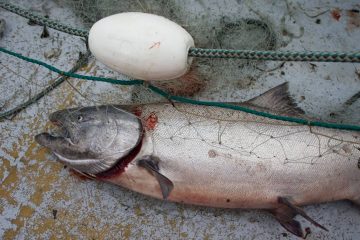 A lot of new faces are coming to the table at the North Pacific Fishery Management Council, and not a lot of them are happy about it. Fishermen who had never previously been involved with the council now have to show up to have a hand in how their fisheries will be incorporated into a federal fishery management plan. The council, which regulates federal fisheries off the coast of Alaska, on Thursday started in on the topic of the salmon plan for Cook Inlet, part of the Alaska Peninsula and part of Prince William Sound near Cordova. After removing the three areas from the plan by amendment in 2011, effectively exempting them from federal oversight and delegating entirely to the state despite occurring partially in federal waters, the U.S. Ninth Circuit Court ruled that the move was illegal. Now, the council is having to initiate the process of revising the salmon FMP to include the net areas, which is likely to take years. click to continue reading the article here 12:12
A lot of new faces are coming to the table at the North Pacific Fishery Management Council, and not a lot of them are happy about it. Fishermen who had never previously been involved with the council now have to show up to have a hand in how their fisheries will be incorporated into a federal fishery management plan. The council, which regulates federal fisheries off the coast of Alaska, on Thursday started in on the topic of the salmon plan for Cook Inlet, part of the Alaska Peninsula and part of Prince William Sound near Cordova. After removing the three areas from the plan by amendment in 2011, effectively exempting them from federal oversight and delegating entirely to the state despite occurring partially in federal waters, the U.S. Ninth Circuit Court ruled that the move was illegal. Now, the council is having to initiate the process of revising the salmon FMP to include the net areas, which is likely to take years. click to continue reading the article here 12:12
COASTAL CONSERVATION ASSOCIATION v. UNITED STATES DEPARTMENT OF COMMERCE
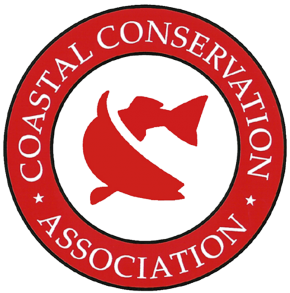 Several private anglers and the Coastal Conservation Association, a group representing private anglers (collectively, CCA), appeal the district court’s summary judgment dismissal of their lawsuit, which challenged Amendment 40 to the Reef Fish Fishery Management Plan and the Final Rule implementing that amendment. Because we find that Amendment 40 is consistent with its organic statute and was properly devised and implemented, we AFFIRM the judgment of the district court. This dispute centers on the management of the red snapper fishery in the Gulf of Mexico. Read the complaint here 09:28
Several private anglers and the Coastal Conservation Association, a group representing private anglers (collectively, CCA), appeal the district court’s summary judgment dismissal of their lawsuit, which challenged Amendment 40 to the Reef Fish Fishery Management Plan and the Final Rule implementing that amendment. Because we find that Amendment 40 is consistent with its organic statute and was properly devised and implemented, we AFFIRM the judgment of the district court. This dispute centers on the management of the red snapper fishery in the Gulf of Mexico. Read the complaint here 09:28
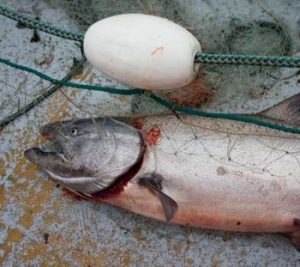
Victorious United Cook Inlet Drift Association file to vacate salmon rule
A Cook Inlet salmon plan will take a lot more work from federal managers in the next few years. The United Cook Inlet Drift Association, an industry group of salmon drift netters, has requested the U.S. District Court of Alaska to vacate a piece of fisheries policy they successfully sued to overturn after an appeal court ruling this past September.In the meantime, the old plan replacing the vacated plan will require some work. “Given the dire situation faced by UCIDA as a result of the federal government’s utter abdication of its (Magnuson-Stevens Act) responsibilities in this important fishery, the Proposed Judgment sought by UCIDA is immediately necessary,” according to the motion filed by UCIDA on Jan. 7. “It would ensure that the checks and balances guaranteed by the Act — including the requirement to use the best available science, to manage the fishery in accordance with the 10 national standards, and to achieve optimum yield — are provided to UCIDA and the fishery in the short term while NMFS works with the council to produce a new FMP.” A three judge panel of the U.S. 9th Circuit Court of Appeals sided with commercial fishing groups against a 2011 decision by the North Pacific Fishery Management Council to remove several Alaska salmon fisheries from the FMP. Read the article here 08:03
Commercial Fishermen Question Obama’s Ocean ‘Monument’ Preserve
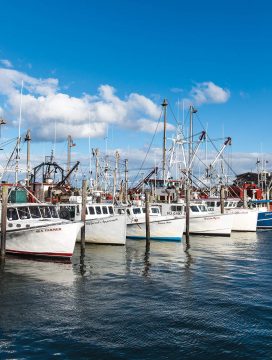 “All commercial fishing is excluded from the area, but fisheries in the top 10 to 20 feet, no way in the world they’re going to impact the bottom,” pointed out Nils Stolpe, communications director of the association. Such is the case for a lot of the Barnegat Light-based boats, he said, for example, longliners and some hook-and-line tuna boats. “They’re fishing 3 miles up above all of this on the ocean floor.” “Longliners are probably affected more than any of our other fisheries up there” by the declaration, said Ernie Panacek, general manager at Viking Village Commercial Seafood Producers in Barnegat Light. “Our bottom longlining boats and surface longlining for sword and tuna boats are going to be affected up there.” Golden tilefish is found on the bottom and tuna and sword on the surface, “and they’re banning all commercial fishing,” Panacek noted. “It’s not a big area, necessarily, but my biggest concern is an expansion of this national monument just like they did in Hawaii,” he added. Panacek said fishermen have done “extensive work” with the Mid-Atlantic Fisheries Council and the Garden State Seafood Association to protect deep-sea coral reefs and sea mounts in the North Atlantic, and were awarded for it. “And now President Obama had to step ahead and do this; I don’t understand,” Panacek said. The federal Magnuson Stevens Act has been managing these areas “and they have been managed properly,” he said. Read the story here 17:47
“All commercial fishing is excluded from the area, but fisheries in the top 10 to 20 feet, no way in the world they’re going to impact the bottom,” pointed out Nils Stolpe, communications director of the association. Such is the case for a lot of the Barnegat Light-based boats, he said, for example, longliners and some hook-and-line tuna boats. “They’re fishing 3 miles up above all of this on the ocean floor.” “Longliners are probably affected more than any of our other fisheries up there” by the declaration, said Ernie Panacek, general manager at Viking Village Commercial Seafood Producers in Barnegat Light. “Our bottom longlining boats and surface longlining for sword and tuna boats are going to be affected up there.” Golden tilefish is found on the bottom and tuna and sword on the surface, “and they’re banning all commercial fishing,” Panacek noted. “It’s not a big area, necessarily, but my biggest concern is an expansion of this national monument just like they did in Hawaii,” he added. Panacek said fishermen have done “extensive work” with the Mid-Atlantic Fisheries Council and the Garden State Seafood Association to protect deep-sea coral reefs and sea mounts in the North Atlantic, and were awarded for it. “And now President Obama had to step ahead and do this; I don’t understand,” Panacek said. The federal Magnuson Stevens Act has been managing these areas “and they have been managed properly,” he said. Read the story here 17:47
NRDC Enviro: Obama Administration is on the verge of weakening the nations fisheries regulations!
 The U.S. has been a global leader in confronting and effectively tackling the overexploitation of its ocean fisheries. While there’s work still be done—more than three dozen fish populations or stocks (out of 233) remain overfished—American fisheries today are among the most sustainable in the world. Yet, with the job unfinished, the Obama Administration is on the verge of weakening fisheries regulations. Last month, enviro 44 organizations wrote to the president opposing these rollbacks. The changes would represent the first significant weakening of the country’s ocean fisheries policy since 1996, when important conservation provisions were enacted into law. NOAA Fisheries, the agency that regulates U.S. fisheries, is proposing to revise the regulations that implement the Magnuson-Stevens Fishery Conservation and Management Act—the nation’s ocean fisheries law—saying that this will give managers more flexibility to handle current fishery management challenges. Read the rest here 19:39 Read this, National Marine Fisheries Service Proposes Weakening Magnuson-Stevens Act Regulations click here
The U.S. has been a global leader in confronting and effectively tackling the overexploitation of its ocean fisheries. While there’s work still be done—more than three dozen fish populations or stocks (out of 233) remain overfished—American fisheries today are among the most sustainable in the world. Yet, with the job unfinished, the Obama Administration is on the verge of weakening fisheries regulations. Last month, enviro 44 organizations wrote to the president opposing these rollbacks. The changes would represent the first significant weakening of the country’s ocean fisheries policy since 1996, when important conservation provisions were enacted into law. NOAA Fisheries, the agency that regulates U.S. fisheries, is proposing to revise the regulations that implement the Magnuson-Stevens Fishery Conservation and Management Act—the nation’s ocean fisheries law—saying that this will give managers more flexibility to handle current fishery management challenges. Read the rest here 19:39 Read this, National Marine Fisheries Service Proposes Weakening Magnuson-Stevens Act Regulations click here
Voters need to take action to save fishing industry – By Christian Putnam
 The federal government could take a page from Gov. Baker’s playbook when it comes to breaking through bureaucratic roadblocks and promoting efficiency. Instead the Obama administration created the National Ocean Policy in 2010 by executive order as a way to deal with the oceans and the future of commercial fishing. In 2012, an implementation plan was outlined, resulting in a 2016 work plan. The National Ocean Policy was billed as a process by which stakeholders could have more direct and immediate control over stewardship of the oceans and the resources within. Instead it has turned into a regulatory burden that requires the participation of many federal agencies, creating an extended process in reacting to changes in the environment and the needs of stakeholders, including the endangered New England Commercial Fisherman. After 40 years of the Magnuson-Stevens Act, it has become apparent that the federal government is just not that good at managing our fisheries resources. Read the rest here 17:38
The federal government could take a page from Gov. Baker’s playbook when it comes to breaking through bureaucratic roadblocks and promoting efficiency. Instead the Obama administration created the National Ocean Policy in 2010 by executive order as a way to deal with the oceans and the future of commercial fishing. In 2012, an implementation plan was outlined, resulting in a 2016 work plan. The National Ocean Policy was billed as a process by which stakeholders could have more direct and immediate control over stewardship of the oceans and the resources within. Instead it has turned into a regulatory burden that requires the participation of many federal agencies, creating an extended process in reacting to changes in the environment and the needs of stakeholders, including the endangered New England Commercial Fisherman. After 40 years of the Magnuson-Stevens Act, it has become apparent that the federal government is just not that good at managing our fisheries resources. Read the rest here 17:38
NOAA Propaganda Machine: Media roundtable on the effects of the Magnuson-Stevens Act on U.S. fisheries after 40 years
 With the Magnuson-Stevens Act, the primary law governing ocean fisheries management in U.S.waters, turning 40 this month, NOAA will feature speakers to discuss how the act serves as an international model for sustainable fisheries science, management, innovation, and collaboration. Media roundtable on the effects of the Magnuson-Stevens Act on U.S. fisheries after 40 years. Both U.S. and international reporters may attend. Thur., Apr. 28, 2:00 p.m. ET. On the panel: Russell Smith, deputy assistant secretary for international fisheries, U.S. Department of Commerce and NOAA-Samuel Rauch, deputy NOAA assistant administrator for fisheries regulatory programs-Matt Tinning, senior campaign director, Environmental Defense Fund oceans program-Chris Brown, president, board of directors, Seafood Harvesters of America-Rick Robins, chairman, Mid-Atlantic Fishery Management Council-Ciaran Clayton, director, NOAA Office of Communications. Interested media may call in to 1-888-810-9645, and use the passcode “MSA” Link 17:00
With the Magnuson-Stevens Act, the primary law governing ocean fisheries management in U.S.waters, turning 40 this month, NOAA will feature speakers to discuss how the act serves as an international model for sustainable fisheries science, management, innovation, and collaboration. Media roundtable on the effects of the Magnuson-Stevens Act on U.S. fisheries after 40 years. Both U.S. and international reporters may attend. Thur., Apr. 28, 2:00 p.m. ET. On the panel: Russell Smith, deputy assistant secretary for international fisheries, U.S. Department of Commerce and NOAA-Samuel Rauch, deputy NOAA assistant administrator for fisheries regulatory programs-Matt Tinning, senior campaign director, Environmental Defense Fund oceans program-Chris Brown, president, board of directors, Seafood Harvesters of America-Rick Robins, chairman, Mid-Atlantic Fishery Management Council-Ciaran Clayton, director, NOAA Office of Communications. Interested media may call in to 1-888-810-9645, and use the passcode “MSA” Link 17:00
Secretary of Commerce adopts halibut bycatch cuts
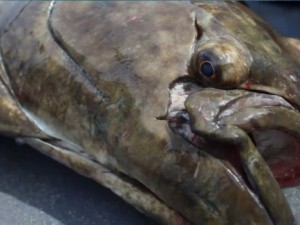 The Secretary of Commerce adopted Amendment 111 to the Magnuson-Stevens Act on Wednesday, which cuts halibut bycatch limits for groundfish trawlers. The amendment aims to reduce the bycatch in Bering Sea and Aleutian Islands groundfish fisheries. The National Oceanic and Atmospheric Administration believes the measure will reduce the overall amount of halibut bycatch in the Bering Sea and Aleutian Islands by 361 metric tons compared to 2014, or nearly 800,000 pounds, freeing up more of the lucrative fish for the directed halibut fishermen in the central Bering Sea. Read the rest here 07:38
The Secretary of Commerce adopted Amendment 111 to the Magnuson-Stevens Act on Wednesday, which cuts halibut bycatch limits for groundfish trawlers. The amendment aims to reduce the bycatch in Bering Sea and Aleutian Islands groundfish fisheries. The National Oceanic and Atmospheric Administration believes the measure will reduce the overall amount of halibut bycatch in the Bering Sea and Aleutian Islands by 361 metric tons compared to 2014, or nearly 800,000 pounds, freeing up more of the lucrative fish for the directed halibut fishermen in the central Bering Sea. Read the rest here 07:38
Richard Gaines – December 22, 2011 – Fish appeal claims feds misled, (and did they ever!)
 An alliance of fishing interests led by the port cities of Gloucester and New Bedford filed briefs Wednesday arguing that the First U.S. District Court of Appeals should overturn a lower court ruling in June that upheld a radical reorganization of New England’s fishing industry. According to the appeal, the government intentionally circumvented requirements of the Magnuson-Stevens Act and camouflaged the changes in order to transform the groundfishery in a commodities market, trading in catch shares, the appellants argued. Since the start of the new regimen in May 2010, Amendment 16 to the Magnuson-Stevens Act has concentrated control of the industry in a small number of hands while “disenfranchising” a larger number of smaller businesses, according to multiple studies. Read the article here 10:15
An alliance of fishing interests led by the port cities of Gloucester and New Bedford filed briefs Wednesday arguing that the First U.S. District Court of Appeals should overturn a lower court ruling in June that upheld a radical reorganization of New England’s fishing industry. According to the appeal, the government intentionally circumvented requirements of the Magnuson-Stevens Act and camouflaged the changes in order to transform the groundfishery in a commodities market, trading in catch shares, the appellants argued. Since the start of the new regimen in May 2010, Amendment 16 to the Magnuson-Stevens Act has concentrated control of the industry in a small number of hands while “disenfranchising” a larger number of smaller businesses, according to multiple studies. Read the article here 10:15
Community Development Quota entities also affect Kodiak fisheries
 Fishermen all over America wonder about the special fishing rights given to the Western Alaska near shore villages, about 65 of them by name, in the Magnuson-Stevens Act. That was one of Ted’s biggest blunders. Now, at least one member of a regional fish council appears to be helping corrupt public elections. It’s a mess few understand, but with hundreds of millions a year at stake, and advantages that normal competitors cannot match when it comes to markets for quota catch shares. Tim Smith of Nome is asking for greater transparency and accountability. Here’s his latest piece, edited just for you. Read the rest here 13:35
Fishermen all over America wonder about the special fishing rights given to the Western Alaska near shore villages, about 65 of them by name, in the Magnuson-Stevens Act. That was one of Ted’s biggest blunders. Now, at least one member of a regional fish council appears to be helping corrupt public elections. It’s a mess few understand, but with hundreds of millions a year at stake, and advantages that normal competitors cannot match when it comes to markets for quota catch shares. Tim Smith of Nome is asking for greater transparency and accountability. Here’s his latest piece, edited just for you. Read the rest here 13:35
Scott W. Lang Weighs in on the “Strengthening Fishing Communities and Increasing Flexibilities in Fisheries Act”
 Scott W. Lang Weighs in on the “Strengthening Fishing Communities and Increasing Flexibilities in Fisheries Act”, otherwise known as the Magnuson-Stevens Act and discusses potential improvements to the bill that would ease the burden on fishermen and communities while streamlining the governmental oversight of the fisheries. Watch the video here 10:56
Scott W. Lang Weighs in on the “Strengthening Fishing Communities and Increasing Flexibilities in Fisheries Act”, otherwise known as the Magnuson-Stevens Act and discusses potential improvements to the bill that would ease the burden on fishermen and communities while streamlining the governmental oversight of the fisheries. Watch the video here 10:56
Charter captain refutes red snapper commentary
 The “scheme” discussed in the commentary by Mr. Brown (4-15-15 issue) is not that the five state plan will destroy the commercial fishery -far from it, as all the states fully understand the importance of the commercial fishery providing safe local seafood to the consumer. The “scheme” is from the many commercial red snapper IFQ (Individual Fishing Quota) owners who mislead the consumers, the seafood houses and restaurants about what they want to do with their commercially harvested red snapper. Read the rest here 08:16
The “scheme” discussed in the commentary by Mr. Brown (4-15-15 issue) is not that the five state plan will destroy the commercial fishery -far from it, as all the states fully understand the importance of the commercial fishery providing safe local seafood to the consumer. The “scheme” is from the many commercial red snapper IFQ (Individual Fishing Quota) owners who mislead the consumers, the seafood houses and restaurants about what they want to do with their commercially harvested red snapper. Read the rest here 08:16
Red Snapper scheme could destroy fishery
 If this scheme becomes law, it could soon become difficult or impossible to legally buy American Red Snapper. Retailers, restaurants and grocery stores will be simply unable to provide consumers with the genuine American Red Snapper that is increasingly popular across the country. Read the rest here 09:40
If this scheme becomes law, it could soon become difficult or impossible to legally buy American Red Snapper. Retailers, restaurants and grocery stores will be simply unable to provide consumers with the genuine American Red Snapper that is increasingly popular across the country. Read the rest here 09:40
Don Young: Stosh Anderson misrepresents Magnuson-Stevens reauthorization
 The April 8 opinion piece by Stosh Anderson, “Don Young seeks to unwind ‘Alaska Model’ for fisheries in Magnuson-Stevens Act,” fails to represent the facts of the legislation I introduced to reauthorize the Magnuson-Stevens Fishery Conservation and Management Act (MSA). The issue, which was clearly ignored in Stosh Anderson’s commentary, is the application of the “Alaska Model” to the nation’s seven other regional fisheries councils, which was done in 2006 through amendments to the MSA. While the premise of the reform was good, the “Alaska Model” has not worked in other areas of the country as well as envisioned — for a number of reasons. Read the rest here 14:27
The April 8 opinion piece by Stosh Anderson, “Don Young seeks to unwind ‘Alaska Model’ for fisheries in Magnuson-Stevens Act,” fails to represent the facts of the legislation I introduced to reauthorize the Magnuson-Stevens Fishery Conservation and Management Act (MSA). The issue, which was clearly ignored in Stosh Anderson’s commentary, is the application of the “Alaska Model” to the nation’s seven other regional fisheries councils, which was done in 2006 through amendments to the MSA. While the premise of the reform was good, the “Alaska Model” has not worked in other areas of the country as well as envisioned — for a number of reasons. Read the rest here 14:27
Don Young seeks to unwind ‘Alaska Model’ for fisheries in Magnuson-Stevens Act
Our lone congressman, Don Young, recently introduced legislation in the U.S. House of Representatives to reauthorize our federal fisheries management law, the Magnuson-Stevens Act. The law is the foundation of sustainable fisheries management, and bears the names and legacy of legendary Sen. Ted Stevens and Sen. Warren Magnuson. Young’s proposed legislation unwinds the important work the senators did to ensure the long-term sustainability of our fisheries. Read the rest here 07:29
Rising tide of America’s sustainable seafood by Ray Hilborn
This year marks 40 years since the passage of landmark Congressional legislation that fundamentally overhauled how the $90 billion U.S. commercial fisheries industry is managed. It established a unique public-private partnership in which the industry, working with scientists and both federal and local authorities, would regulate fishing according to agreed-upon scientific standards for environmental sustainability, even as the industry stretched to meet skyrocketing demand for seafood. Read the rest here 17:19
Alabama U.S. Rep Bradley Byrne wants red snapper quotas repealed, their management brought home to Gulf Coast
 The Red Snapper Regulatory Reform Act is back on the table in the U.S. Congress. Its sponsor, U.S. Rep. Bradley Byrne (AL-01) and long-time observers of management of the popular reef fish in the Gulf of Mexico say its passage is necessary to open the fishery to alternatives to the current restrictive quota system as created under the Magnuson-Stevens Act. Read the rest here 22:20
The Red Snapper Regulatory Reform Act is back on the table in the U.S. Congress. Its sponsor, U.S. Rep. Bradley Byrne (AL-01) and long-time observers of management of the popular reef fish in the Gulf of Mexico say its passage is necessary to open the fishery to alternatives to the current restrictive quota system as created under the Magnuson-Stevens Act. Read the rest here 22:20
Magnuson-Stevens Act – National Standards 1, 3, 7 – Proposed Revisions
 Today, a proposed rule to revise guidelines for National Standards 1, 3, and 7 was filed in the Federal Register. National Standards 1, 3, and 7 of the Magnuson-Stevens Fishery Conservation and Management Act pertain to overfishing, rebuilding overfished stocks, and achieving optimum yield.
Today, a proposed rule to revise guidelines for National Standards 1, 3, and 7 was filed in the Federal Register. National Standards 1, 3, and 7 of the Magnuson-Stevens Fishery Conservation and Management Act pertain to overfishing, rebuilding overfished stocks, and achieving optimum yield. NOAA Fisheries NMFS will accept public comments through June 30, 2015, Proposed rule (as filed version).Read the rest here 16:16








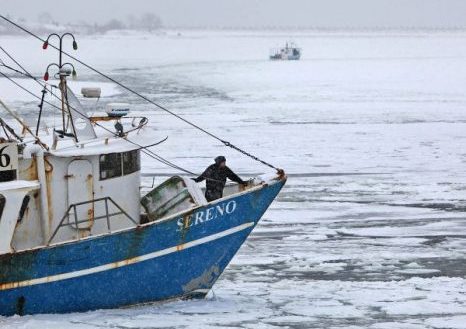

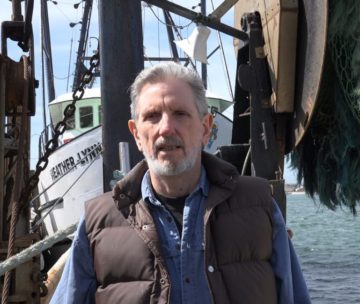
 There have been basically two approaches to the current reauthorization. One leaves the language of the act as is, the other makes changes.,, The substance of the 1996 reauthorization was driven by a burgeoning political influence of conservation groups. The act was moved from simply defined principles of fisheries management, such as estimating maximum sustained yield to avoid overfishing, to concepts like “rebuilding” stocks that were thought to be overfished, and to protecting the “environment” thought to be degraded by fishing.
There have been basically two approaches to the current reauthorization. One leaves the language of the act as is, the other makes changes.,, The substance of the 1996 reauthorization was driven by a burgeoning political influence of conservation groups. The act was moved from simply defined principles of fisheries management, such as estimating maximum sustained yield to avoid overfishing, to concepts like “rebuilding” stocks that were thought to be overfished, and to protecting the “environment” thought to be degraded by fishing.  Thank you for the editorial “White House puts politics ahead of fishery science” published on Tuesday, May 26. You have provided your readers an insight into the utter dysfunction which pervades the government’s management of New England fisheries. By way of background, the Secretary of Commerce declared the northeast groundfish fishery an economic disaster in September, 2012. Subsequently, Congress appropriated approximately $33 million in disaster assistance to be distributed by the National Marine Fisheries Service,,,
Thank you for the editorial “White House puts politics ahead of fishery science” published on Tuesday, May 26. You have provided your readers an insight into the utter dysfunction which pervades the government’s management of New England fisheries. By way of background, the Secretary of Commerce declared the northeast groundfish fishery an economic disaster in September, 2012. Subsequently, Congress appropriated approximately $33 million in disaster assistance to be distributed by the National Marine Fisheries Service,,,  Here’s an idea:
Here’s an idea:  Young’s proposed version of the MSA is titled the “Strengthening Fishing Communities and Increasing Flexibility in Fisheries Management Act.” His philosophy is to let the councils, who have more intimate understandings of their stocks and more responsiveness than the Department of Commerce, have more control of their respective operations, and to update the act to account for better scientific governance and more attention to economic effects. The revised act has several amendments regarding stock rebuilding protocols, council transparency,,,
Young’s proposed version of the MSA is titled the “Strengthening Fishing Communities and Increasing Flexibility in Fisheries Management Act.” His philosophy is to let the councils, who have more intimate understandings of their stocks and more responsiveness than the Department of Commerce, have more control of their respective operations, and to update the act to account for better scientific governance and more attention to economic effects. The revised act has several amendments regarding stock rebuilding protocols, council transparency,,, 




























